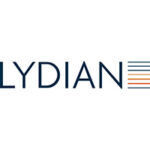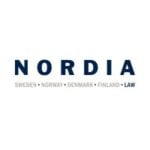-
What are the key financial crime offences applicable to companies and their directors and officers? (E.g. Fraud, money laundering, false accounting, tax evasion, market abuse, corruption, sanctions.) Please explain the governing laws or regulations.
Key financial crime offences are set out in the Austrian Criminal Code (Strafgesetzbuch, or StGB) as follows:
- embezzlement (Section 133)
- fraud (Sections 146 – 151)
- breach of trust (Section 153)
- withholding of employee social security contributions (Section 153c)
- fraudulent reduction of assets and insolvency-related offences (Sections 156-163a)
- money laundering (Section 165)
- various bribery offences (Sections 304–309)
- anti-competitive agreements in procurement procedures (Section 168b)
Tax evasion and tax fraud are regulated in the Austrian Financial Crimes Act (Finanzstrafgesetz, or FinStrG). Insider dealing, disclosure of inside information and market manipulation are regulated in the Austrian Stock Exchange Act (Börsegesetz 2018).
Under Austrian criminal law, both individuals and corporations can be held criminally liable for the same offence (see details in Q 2 below).
-
Can corporates be held criminally liable? If yes, how is this determined/attributed?
Since the introduction of the Austrian Act on Corporate Criminal Liability (Verbandsverantwortlichkeitsgesetz or VbVG) in 2006, corporations are criminally liable for the unlawful and culpable actions of their decision-makers (i.e., higher-ranking individuals with the authority to represent the company) and, under more restrictive conditions, for the actions of their employees. Although the application of the VbVG is not limited to certain, specified, offences, the liability of the organization is of practical importance in white-collar crime and financial crime cases.
Pursuant to the VbVG, the basic prerequisite to attach liability to a corporation is that
- the offence is committed for the benefit of the corporation or
- the offence violated duties incumbent upon the corporation.
The corporation is liable for the criminal action of its decision-maker if the offence was committed unlawfully and culpably within the scope of the decision-maker’s function. An offence committed by an employee is attributable to the corporation if the employee has acted unlawfully, and the offence is made possible or is significantly facilitated by the fact that the corporation did not exercise due and reasonable care to prevent such offences (particularly, as may be due to violations of organisational and supervisory duties).
While individuals are subject to the whole range of penalties and other sanctions provided for in the Austrian Criminal Code, sanctions imposed upon corporations are limited to fines. Such fines are based on the corporation’s earnings and certain aggravating or mitigating factors.
As of September 2023, the maximum fine for offences such as severe fraud, breach of trust, or corruption has been increased to EUR 3.9 million.
-
What are the commonly prosecuted offences personally applicable to company directors and officers?
The commonly prosecuted offences that are applicable, personally, to company directors and officers are the following:
- embezzlement (Section 133 Austrian Criminal Code)
- fraud (Section 146 – 147 Austrian Criminal Code)
- breach of trust (Section 153 Austrian Criminal Code)
- withholding of employee social security contributions (Section 153c Austrian Criminal Code)
- fraudulent reduction of assets and insolvency-related offences (Sections 156-163a Austrian Criminal Code)
- tax evasion and tax fraud (Section 33 and Section 39 Austrian Financial Crimes Act).
-
Who are the lead prosecuting authorities which investigate and prosecute financial crime and what are their responsibilities?
Criminal offences are investigated by public prosecutors with the assistance of the criminal investigation department of the police.
The central responsibilities of the public prosecutor’s office are determined by constitutional law which stipulates that public prosecutor’s offices perform investigative and prosecutorial functions in proceedings involving offences punishable by law.
The Austrian Central Public Prosecutor’s Office for the Prosecution of Economic Crimes and Corruption (Wirtschafts- und Korruptionsstaatsanwaltschaft or WKStA) is a specialised prosecution authority for certain offences involving economic crimes and corruption.
The public prosecution authorities are supported by the Federal Bureau of Anti-Corruption (Bundesamt zur Korruptionsbekämpfung).
Fiscal offences are investigated by the Anti-Fraud Office (Amt für Betrugsbekämpfung).
In case of offences regarding (national and European) competition law the Federal Competition Authority (Bundeswettbewerbsbehörde) is the leading authority conducting investigations.
The Financial Market Authority (Finanzmarktaufsicht or FMA) is an administrative authority which supervises inter alia banks, insurance companies and companies listed on the Vienna Stock Exchange. One of its main tasks include the supervision of compliance with the Money Laundering Act.
-
Which courts hear cases of financial crime? Are they determined by tribunals, judges or juries?
In Austria, there is no separate jurisdiction for financial crimes apart from the jurisdiction of the Federal Fiscal Court (Bundesfinanzgericht) for intentional fiscal offences, like tax fraud, with damages of less than EUR 75.000 or EUR 150.000.
The competence to hear criminal cases as well as the composition of the criminal court (single judge or tribunals including juries) depends on the statutory penalty ascribed to the offence charged.
Regarding white-collar crime cases, smaller cases, such as fraud or embezzlement with damage below EUR 5.000, are heard by a single judge. In larger cases, the court consists of a tribunal comprised of judges and non-judges. In larger courts, there are special departments dealing exclusively with white-collar crime cases.
-
How do the authorities initiate an investigation? (E.g. Are raids common, are there compulsory document production or evidence taking powers?)
Investigations are usually triggered by either a criminal complaint or are initiated ex officio by the authorities who take notice of a potential criminal offence. In cases in which the public prosecutor determines adequate suspicion that a criminal offence has been committed, criminal proceedings must be initiated.
In Austria, the investigating authorities have a wide range of investigative measures at their disposal. The public prosecutor’s office leads the investigation and decides on the implementation of measures such as seizure and confiscation, disclosure on bank transactions through the lifting of banking secrecy, raids, surveillance measures, examination of witnesses and pre-trial detention. Compulsory document production is not provided for in Austria. Some of these measures must be approved by the court prior to their implementation.
-
What powers do the authorities have to conduct interviews?
During the investigation proceedings the authorities can either conduct an informal questioning (Erkundigung) or a formal interview (Vernehmung).
The authorities have the power to formally interrogate witnesses and persons accused. Both accused and non-target witnesses can be forced to appear to the interrogation.
The accused has the right to remain silent, while the witnesses are obliged to testify and tell the truth. However, the law provides for a number of exceptions to the obligation to testify (e.g. for close relatives, professional confidentiality).
Clergymen, civil servants involved in matters of secrecy, members of parliamentary committees involved in matters of classified information and persons unable to testify (e.g. mentally ill persons) are not compelled to interview.
-
What rights do interviewees have regarding the interview process? (E.g. Is there a right to be represented by a lawyer at an interview? Is there an absolute or qualified right to silence? Is there a right to pre-interview disclosure? Are interviews recorded or transcribed?)
In general, interviews are transcribed, but can also be recorded.
Accused individuals (and corporations’ representatives) have a right to remain silent and avoid self-incrimination.
Before an interview, the accused has the right to access the files of the investigation and proceedings.
The accused also has a number of information rights. The prosecuting authorities must inform the accused of i) the offence of which he or she is suspected, ii) his or her right to seek legal advice prior to the interview and iii) the right to have a lawyer present during the interview. They also must inform the accused of the right to refuse to testify. If these information obligations are breached, the accused’s statement is null and void, and therefore may not be used.
The accused has the right to have a lawyer present during questioning, but the lawyer cannot participate in the interview itself in any way. However, the lawyer has the right to address questions to the accused and to make statements. The accused may refuse to make an oral statement and instead submit a written statement.
Promises (e.g. with regard to a certain outcome of the proceedings), pretences (e.g. suggesting evidence that does not actually exist) and coercion (particularly, torture) are prohibited, and statements elicited in one of these ways cannot be used to the disadvantage of the accused. Trick questions are also prohibited.
Witnesses who are to testify in criminal proceedings against a relative, and particularly vulnerable victims have (under some conditions) the right to refuse to testify.
Witnesses also have the right not to answer certain questions if there is a risk of self-incrimination or the risk of incriminating a relative. Of particular importance in this context is the right of persons subject to professional secrecy (e.g. lawyers, psychologists, et al.) to refuse to testify about facts that have become known to them in their professional capacity.
In the case of a corporation, the directors (persons in charge) as well as the employees suspected of having committed an offence are to be interrogated in the same manner and extent as a person accused.
-
Do some or all the laws or regulations governing financial crime have extraterritorial effect so as to catch conduct of nationals or companies operating overseas?
In general, Austrian criminal law has no extraterritorial effect. Therefore, financial crimes committed outside of Austria are in principle not subject to the Austrian criminal jurisdiction.
Nevertheless, Austrian criminal law applies to some offences committed abroad (irrespective of the criminal law of the place of the offence), such as money laundering, receiving stolen goods, unacceptable presentation of material information about certain associations and unacceptable reports by auditors of certain associations, if the association’s head office or registered office is located in Austria. The same applies to participation in any criminal offence if the direct perpetrator committed it in Austria.
Other offences committed abroad are only subject to Austrian criminal law if the offence is also punishable under the law of the place where the offence was committed, and the offender is Austrian, or is arrested in Austria and cannot be extradited.
-
Do the authorities commonly cooperate with foreign authorities? If so, under what arrangements?
Austrian authorities and courts rely upon international cooperation for the enforcement of their authority outside Austria. In the area of cooperation within the EU, for example, the Federal Law on Judicial Co-operation in Criminal Matters with the Member States of the European Union (EU-JZG) stipulates extensive possibilities for cross-border enforcement and the execution of orders to freeze assets or secure evidence.
-
What are the rules regarding legal professional privilege? What, if any, material is protected from production or seizure by financial crime authorities?
Austrian law provides for professional privilege inter alia for the legal profession.
These professionals are subject to a duty of confidentiality and have the right to refuse to give evidence. This right to refuse testimony and give evidence concerns all facts that have become known to them in their professional capacity and may not be circumvented, for example, by seizing and confiscating documents and data carriers or by questioning third parties. Whether the documents are held by the lawyer, or the accused is not relevant. In addition, documents created for the purpose of advising or defending the accused, are excluded from seizure.
-
What rights do companies and individuals have in relation to privacy or data protection in the context of a financial crime investigation?
Data protection regarding criminal proceedings is regulated in Sections 74 et seq. of the Austrian Code of Criminal Procedure as well as in the Data Protection Act (Datenschutzgesetz). Naturally, the General Data Protection Regulation (Datenschutzgrundverordnung or GDPR) applies where it is not replaced by these special regulations.
Individuals whose data has been processed have the right to access data, rectify inaccurate data, and to erase data processed without authorisation. They also have the right to demand immediate erasure of incorrect data or data collected contrary to the statutory provisions. The Austrian Code of Criminal Procedure foresees deletion periods in case of convictions and acquittals as well as an absolute deletion period. Furthermore, it foresees special rules for the processing of data that has been collected by using especially invasive methods.
The scope of these rights and the mechanisms to enforce them vary, depending on the stage of the procedure. In short it can be said that concerned natural and legal persons may apply to access (inspection of records) and rectify/erase data at all times. Applications are to be filed with the prosecutor’s office or the competent court.
If the criminal authorities do not comply with these requests, concerned persons may file complaints and, in the preliminary proceedings, object on the grounds of infringement of their rights. In cases where the criminal investigation department denies the inspection of records, a complaint is possible with the data protection authority.
-
Is there a doctrine of successor criminal liability? For instance in mergers and acquisitions?
Pursuant to VbVG, the successor entity can be held liable for offences committed by the target entity prior to that merger or acquisition. The same applies to fines imposed prior to the merger or acquisition.
-
What factors must prosecuting authorities consider when deciding whether to charge?
If at the end of preliminary criminal proceedings, the findings of the investigation indicate that the accused is likely to be convicted and there is no reason for the proceedings to be discontinued, aborted (against absentee or unknown perpetrators) or settled by diversion, the public prosecutor’s office must file charges with the court responsible for the main proceedings.
-
What is the evidential standard required to secure conviction?
The evidential standard required for the public prosecutor’s office to secure a conviction is that such a conviction is more likely to obtain than an acquittal. In practice, the public prosecutor will only press charges if there is a conviction probability greater than 50%.
To convict a defendant, the court must be convinced to the highest standard of proof (i.e. beyond reasonable doubt). If, despite a thorough assessment of the evidence, doubts remain as to the guilt of the accused, the defendant must be acquitted in dubio pro reo.
-
Is there a statute of limitations for criminal matters? If so, are there any exceptions?
Under Austrian criminal law, the limitation period for criminal liability depends on the potential punishment.
For offences punishable by imprisonment between 10 and 20 years or for life, and for certain other particularly serious offences (e.g., genocide, crimes against humanity, and war crimes), there is no statute of limitations, although after 20 years the punishment is reduced from imprisonment for life to imprisonment for 10 to 20 years.
Regarding offences that are punishable by imprisonment between 5 and 10 years – such as the most severe white-collar crime cases – the statute of limitations is ten years. For the offences of fraud, embezzlement and breach of trust involving damages of less than EUR 300.000 the statute of limitations is five years.
-
Are there any mechanisms commonly used to resolve financial crime issues falling short of a prosecution? (E.g. Deferred prosecution agreements, non-prosecution agreements, civil recovery orders, etc.) If yes, what factors are relevant and what approvals are required by the court?
If a criminal offence is suspected, the public prosecutor’s office is obliged to initiate an investigation and to examine the suspicion. Deferred prosecution agreements, non-prosecution agreements or their equivalents, are not contemplated in the Austrian Code of Criminal Procedure.
For criminal offences to which a punishment of less than five years imprisonment is attached, there is the possibility of the so-called diversion, which is a termination of criminal proceedings without a formal sanction of the accused. In contrast to a conviction, a diversion is not entered in the criminal register.
The basic prerequisites include that the facts of the case are sufficiently clear, that the culpability of the accused is not considered severe, that there are no general or special preventative reasons for a conviction and a (at least) partial assumption of responsibility of the accused for the offence with which he/she is charged. For the corruption offences a diversion is not possible.
Diversionary measures include the payment of a fine to the federal government or compensation for the offence, such as through compensation for damages, or the provision of community service.
Regarding corporations, diversion is also available. In addition to the requirements applicable to natural persons, the association must also demonstrably compensate for the damage and remedy other consequences of the offence.
A special form of diversion is provided (under certain conditions) in the case of voluntary cooperation with the public prosecutor’s office to investigate serious offences or antitrust violations.
In the best case, a full and strong cooperation with the prosecution authority could lead to an outcome comparable to a non-prosecution agreement in other jurisdictions.
Both the public prosecutor (until the indictment is issued) and the court (after the indictment has been issued by the public prosecutor) can proceed with diversionary measures in the criminal proceedings.
-
Is there a mechanism for plea bargaining?
Plea bargaining is not allowed in Austria.
However, pleading guilty and showing remorse are mitigating factors provided by law and the court must consider them in the sentencing.
-
Is there any obligation to disclose discovered misconduct to prosecuting authorities, or any benefit to making a voluntary disclosure? Is there an established route or official guidance for making such disclosures?
There is no legal duty for individuals and companies to report discovered misconduct to law enforcement authorities. Authorities and public offices have a duty to report any criminal offence concerning their regular mandate if they become aware of it. Austrian law provides for a duty of disclosure for doctors and other healthcare professionals (under certain conditions).
However, self-reporting may be advisable in circumstances in which the company can take advantage of a leniency programme (Kronzeugenregelung). These are special diversion regulations that allow (provisional) withdrawal from the prosecution of the offender (after the provision of a diversionary service, such as the payment of a fine) due to cooperation with the public prosecutor’s office. Such cooperation must either be for the investigation of a serious criminal offence or in connection with violations of the ban on cartels.
If all legal requirements are met, the individual or entity concerned has a legal claim to the application of the leniency program by the public prosecutor’s office.
The Austrian Financial Crimes Act (Finanzstrafgesetz or FinStrG) provides, in connection with tax offences, impunity under certain conditions (in particular payment of the tax debt) if a voluntary self-disclosure is made.
-
What rules or guidelines determine sentencing? Are there any leniency or discount policies? If so, how are these applied?
The upper and lower limits of the sentence are regulated by law for each offence. In the event of a concurrence of similar types of penalty (e.g. custodial sentences), the penalties for the competing offences must be compared and the penalty range with the highest threatened maximum penalty and the highest threatened minimum penalty must be used to determine the penalty.
In criminal law, culpability is not only a prerequisite for someone to be held criminally liable, the degree of culpability is also an essential criterion for determining the level of punishment. The degree of wrongfulness of the offence is a second relevant component in the assessment of the penalty. A higher degree of wrongfulness of the offence is regularly an indication of a higher degree of culpability on the part of the offender. Both components, the wrongfulness of the offence and the individual culpability of the offender, are starting points for the assessment of the penalty. In addition to culpability, the law expressly regards the extent of the damage or danger and the number of breaches of duty as assessment criteria.
When determining the sentence, the court must weigh the aggravating and mitigating factors provided by law against each other and take into account the effects of the sentence and other expected consequences of the offence on the offender’s future life in society. In particular, the extent to which the offence is attributable to an attitude of rejection or indifference towards legally protected values on behalf of the offender and the extent to which it is attributable to external circumstances must be taken into account.
A remorseful confession and a significant contribution to establishing the truth are expressly included as legal grounds for mitigation. The Austrian Criminal Code provides for an exceptional mitigation of punishment in the event of cooperation with the prosecution authorities in relation to serious offences such as a criminal organisation or participation in a terrorist group. The specific conditions for this are also expressly regulated by law. However, “fixed” reductions of the sentence are not provided.
Concerning corporate criminal liability, the law also provides for aggravating and mitigating factors. Mitigating factors include preventative measures taken by the corporation prior to the offence, a contribution to the resolution of the case and essential measures to prevent future offences.
-
How are compliance procedures evaluated by the prosecuting authorities and how can businesses best protect themselves?
Under Austrian corporate criminal law, the absence of adequate mechanisms to prevent the offence (i.e. a robust compliance system) in connection with an offence committed by an employee (but not in case of an offence committed by a decision-maker of the company) is a necessary legal requirement for corporate criminal liability (see Q 2).
Although the public prosecutor bears the burden of proof regarding the fact that a lack of proper mechanisms enabled the offence by the employee, the demonstration of an adequate and functioning compliance management system by the suspected company bolsters the company’s argument that the committed offence was merely the act of an individual breaching an existing compliance rule. It would be optimal for the company to demonstrate that the offence was not a pervasive and tolerated failure within the organizational structure. Certification of the compliance management system, ideally to recognised standards, is helpful in this regard.
In any case, the existence of a compliance system, or the implementation of such a system in the immediate aftermath of a criminal act, will lead to an improvement of the final outcome.
-
What penalties do the courts typically impose on individuals and corporates in relation to the key offences listed at Q1?
In white-collar crime cases, a key factor in determining the penalties is the amount of damage inflicted. In practice, the penalties range from 8-9 years imprisonment to a small fine or a probationary period. Based on the publicly available information from Statistics Austria for the year 2024, courts tend to impose predominantly conditional custodial sentences and unconditional fines on individuals for convictions concerning criminal offences against property. However, the specific penalty must be imposed on a case-by-case basis and considering the factors set out in Q 20.
-
What rights of appeal are there?
Persons affected by investigative measures of the public prosecutor’s office can lodge an objection (Einspruch) with the court on the grounds of violation of their subjective rights. Court decisions in preliminary proceedings can be appealed (Beschwerde) to the higher court. The accused also has the right to lodge an objection (Einspruch) against the indictment with the court.
Depending on the adjudicating body (e.g. single judge or jury court), various legal remedies are available against criminal court judgments. The most important legal remedies are the nullity appeal (Nichtigkeitsbeschwerde) and the appeal against the sentence (Strafberufung). These rights of appeal can be used to challenge certain legal errors (so-called nullities), the evaluation of evidence (i.e. the resolution of the question of fact), the sentence and the decision on claims under private law.
Several extraordinary legal remedies are also provided for, such as the reopening of proceedings (Wiederaufnahme des Verfahrens), the fundamental rights complaint (Grundrechtsbeschwerde) and the individual complaint to the European Court of Human Rights (ECHR) (Individualantrag an den Europäischen Gerichtshof für Menschenrechte).
-
How active are the authorities in tackling financial crime?
The Austrian authorities have taken various initiatives for the purpose of tackling financial crime in recent years.
The most important development in this regard was the establishment of the Central Public Prosecutor’s Office for the Prosecution of Economic Crimes and Corruption (WKStA) in 2011. There are also specialised court divisions for economic and corruption-related criminal cases.
The Anti-Fraud Office (Amt für Betrugsbekämpfung) was also created as part of the reorganisation of the financial administration in 2021. Its area of responsibility includes criminal financial offences.
-
In the last 5 years, have you seen any trends or focus on particular types of offences, sectors and/or industries?
In recent years, there have been many investigations into allegations of corruption in the public sector. In 2024, the criminal law on corruption was tightened by introducing new offences and by the expansion of penalties (see Q 26).
Also, due to the rapidly rising insolvencies in Austria, particularly in the construction industry but in other sectors, as well, offences such as fraudulent reduction of assets and grossly negligent impairment of creditor interests are increasingly becoming under scrutiny by investigative authorities.
According to official statistics the overall number of fraud cases has risen and is at an all-time high.
-
Have there been any landmark or notable cases, investigations or developments in the past year?
As mentioned in the answer to Q 25, there have been several prominent criminal proceedings in recent years concerning allegations of corruption in the public sector (e.g. the notorious “Ibiza affair” involving Austria’s then Vice-Chancellor). These criminal proceedings and the gaps in the law identified in this context led to reforms in the criminal law on corruption in 2023.
The offence of buying a mandate was introduced and the definition of public officials in the case of corruptibility was extended to include candidates for office. Criminal liability depends on whether the candidate becomes a public official. To this point, criminal liability presupposed the holding of an office, which is why the bribery of candidates for an office was not punishable either to the candidate or the briber.
To be able to combat cases of the most serious corruption (bribes amounting to more than EUR 300.000) more effectively, and to achieve corresponding deterrents, higher penalties have been introduced for corruption offences. The maximum penalty for bribery/corruptibility is now a 15-year imprisonment. A conviction for a corruption offence now also leads to a preclusion of the right to stand for election. Simultaneously, the maximum penalties for criminal corporate liability have also been increased.
Two yeas ago, Austria implemented the EU Whistleblower Protection Directive, which obligates legal entities with at least 50 employees as well as federal states and municipalities (provided they do not have fewer than 10,000 inhabitants or fewer than 50 employees) to set up reporting channels for the internal reporting of certain violations and ensures the protection of whistleblowers against reprisals. This law is a crucial step in the right direction. Affected companies should ideally consult an experienced law firm to fully establish an adequate whistleblowing program.
Another important change to the law in connection with business crimes took place this year with the introduction of the legal consequence of disqualifying a person convicted of certain offences as a managing director or board member for a period of three years.
A comprehensive bill amended the Austrian Code of Criminal Procedure in 2025: The core of this law is the regulation of the seizure of mobile data carriers (e.g. cell phones), which in can only be carried out with court approval (until recently, the seizure of mobile data carriers has been permitted by order of the public prosecutor’s office).
Furthermore, this law also provides for numerous amendments and innovations in criminal procedure, including measures to speed up investigative proceedings.
-
Are there any pending or proposed changes to the legal, regulatory and/or enforcement framework?
The federal government has agreed to establish an independent federal prosecutor’s office (Bundesstaatsanwaltschaft) as the country’s highest investigative and prosecuting authority, in an attempt to minimize political influence, in particular, in high profile matters. Various scandals and repeated criticism by international NPOs, such as GRECO, have led to this legislative initiative.
The establishment of such an independent federal prosecutor’s office is currently in the legislative drafting phase and subsequently will be reviewed in parliament.
-
Are there any gaps or areas for improvement in the financial crime legal framework?
Austria’s financial crime legal framework, while nominally aligned with the European Union acquis, continues to display a tendency towards formal compliance, prioritizing procedural adherence rather than substantive enforcement. In practice, the legislation falls short in effectively operationalizing risk classification measures and does not adequately mandate binding requirements for the systematic allocation of material and personnel resources. As a result, the current framework does not yet provide a sufficiently robust foundation for proactive risk management and therefore, undermines the ability of responsible institutions to deter money laundering and other illicit financial activities. Addressing these deficiencies is important in order to enhance Austria’s resilience and align with evolving international standards. If Austria fails to do so it risks being listed on the “grey list” of the FATF.
Austria: White Collar Crime
This country-specific Q&A provides an overview of White Collar Crime laws and regulations applicable in Austria.
-
What are the key financial crime offences applicable to companies and their directors and officers? (E.g. Fraud, money laundering, false accounting, tax evasion, market abuse, corruption, sanctions.) Please explain the governing laws or regulations.
-
Can corporates be held criminally liable? If yes, how is this determined/attributed?
-
What are the commonly prosecuted offences personally applicable to company directors and officers?
-
Who are the lead prosecuting authorities which investigate and prosecute financial crime and what are their responsibilities?
-
Which courts hear cases of financial crime? Are they determined by tribunals, judges or juries?
-
How do the authorities initiate an investigation? (E.g. Are raids common, are there compulsory document production or evidence taking powers?)
-
What powers do the authorities have to conduct interviews?
-
What rights do interviewees have regarding the interview process? (E.g. Is there a right to be represented by a lawyer at an interview? Is there an absolute or qualified right to silence? Is there a right to pre-interview disclosure? Are interviews recorded or transcribed?)
-
Do some or all the laws or regulations governing financial crime have extraterritorial effect so as to catch conduct of nationals or companies operating overseas?
-
Do the authorities commonly cooperate with foreign authorities? If so, under what arrangements?
-
What are the rules regarding legal professional privilege? What, if any, material is protected from production or seizure by financial crime authorities?
-
What rights do companies and individuals have in relation to privacy or data protection in the context of a financial crime investigation?
-
Is there a doctrine of successor criminal liability? For instance in mergers and acquisitions?
-
What factors must prosecuting authorities consider when deciding whether to charge?
-
What is the evidential standard required to secure conviction?
-
Is there a statute of limitations for criminal matters? If so, are there any exceptions?
-
Are there any mechanisms commonly used to resolve financial crime issues falling short of a prosecution? (E.g. Deferred prosecution agreements, non-prosecution agreements, civil recovery orders, etc.) If yes, what factors are relevant and what approvals are required by the court?
-
Is there a mechanism for plea bargaining?
-
Is there any obligation to disclose discovered misconduct to prosecuting authorities, or any benefit to making a voluntary disclosure? Is there an established route or official guidance for making such disclosures?
-
What rules or guidelines determine sentencing? Are there any leniency or discount policies? If so, how are these applied?
-
How are compliance procedures evaluated by the prosecuting authorities and how can businesses best protect themselves?
-
What penalties do the courts typically impose on individuals and corporates in relation to the key offences listed at Q1?
-
What rights of appeal are there?
-
How active are the authorities in tackling financial crime?
-
In the last 5 years, have you seen any trends or focus on particular types of offences, sectors and/or industries?
-
Have there been any landmark or notable cases, investigations or developments in the past year?
-
Are there any pending or proposed changes to the legal, regulatory and/or enforcement framework?
-
Are there any gaps or areas for improvement in the financial crime legal framework?


















